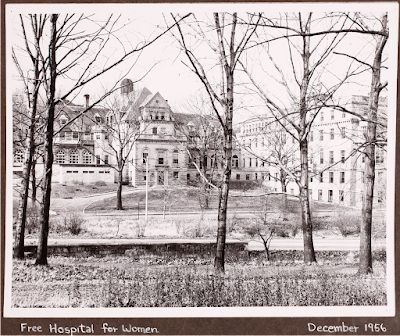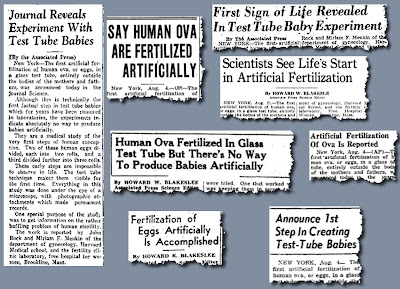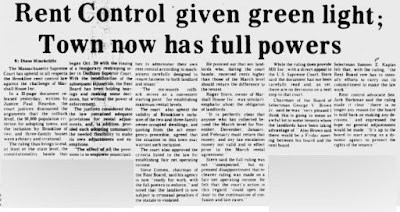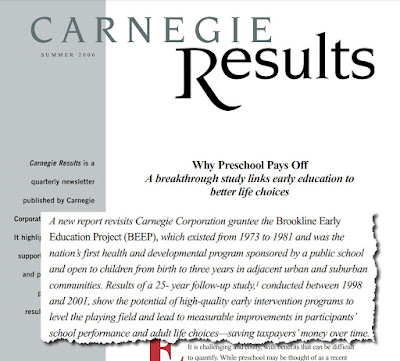 |
| February 11, 1944 |
February 5, 1916 - New tuberculosis hospital opens
February 11, 1944 - First in vitro fertilization at Women's Hospital
February 10, 1971 - Court upholds Brookline rent control law
February 8, 1973 - Start of Brookline Early Education Program (BEEP)
February 5, 1916
New tuberculosis hospital opens
 |
| Brookline Tuberculosis Hospital as shown in The American Architect, March 14, 1917 |
The triangle of land at the corner of Newton and Grove Streets, adjacent to the Country Club, was far removed from the centers of population of the town. As such, it became the location for a variety of facilities that remained largely out of sight to most residents.
These included an almshouse, opened in 1883 under the management of the Overseers of the Poor, where indigent individuals and families were provided housing. A high service pumping station for the town's water supply was added in 1885. A series of hospitals for treating contagious diseases also occupied the space.
In 1916, a new building specifically for tuberculosis patients (the pink building at the top of 1919 map below) was added to the complex. This location continued to be used as a hospital site until the 1950s when a new Brookline Hospital was built (where Goddard House is today) and the land was sold to a developer for new housing.
February 11, 1944
First in vitro fertilization at Women's Hospital
“I felt like -- who was the first man to look at the Pacific -- Balboa? You see, I really was nobody. If you don’t get a doctorate in this kind of field, You always work under other people. You’re in a different category. You may want to do independent work, but you’re not allowed to. But there it was …the first fertilized egg...what no one had ever done before.”
 |
| The Free Hospital for Women, now condominiums on Pond Street |
 |
| Rock and Menkin's achievement, published by them in the journal Science, led to widespread publicity -- and controversy. |
Court upholds Brookline rent control law
Three-and-a-half months after it went into effect, Brookline's rent control bylaw survived a challenge by landlords in the state's Supreme Court. The ruling also cleared the way for Cambridge and Somerville, which had adopted their own bylaws in the wake of a new state law allowing local rent control rules.
 |
| Image via Brookline Newspaper Archive, Public Library of Brookline |
Brookline's bylaw had been passed by Town Meeting in September. Michael Dukakis, then a state legislator and candidate for lieutenant governor, spoke at Town Meeting, stating that a "rent control bill with real enforcement powers is needed to protect both honest landlords and tenants who have been victimized by unscrupulous landlords."
Rent control ended in Brookline in 1996, phased out in the wake of a close vote on a November 1994 Massachusetts referendum that abolished rent control statewide.
Start of Brookline Early Education Program (BEEP)
The announcement of the official launch of the Brookline Early Education Project, or BEEP, called it "the first major school-based program to provide comprehensive education and health services to children during infancy and the early years of life."
 |
| 2006 analysis of the BEEP program by one of the original funders, 25 years after the end of the eight-year pilot project. |
The program began with more than 150 racially and economically diverse participants from Brookline and parts of Boston. A study of the participants, 25 years after the end of the pilot program found that results "add to the growing body of findings that indicate that long-term benefits occur as the result of well-designed, intensive, comprehensive early education." This pioneering program continues to be a part of the Brookline Schools 50 years after it began.

No comments:
Post a Comment